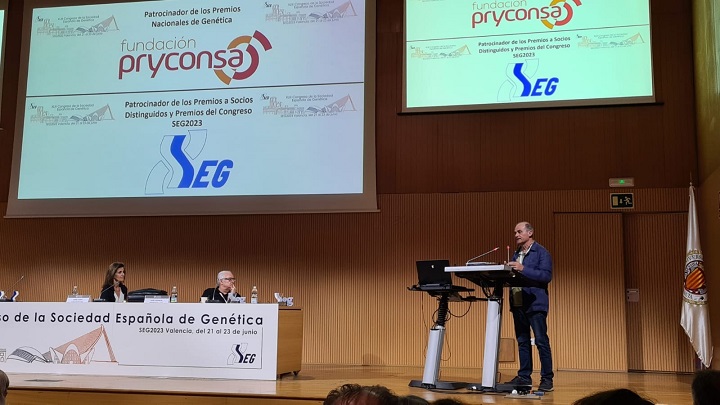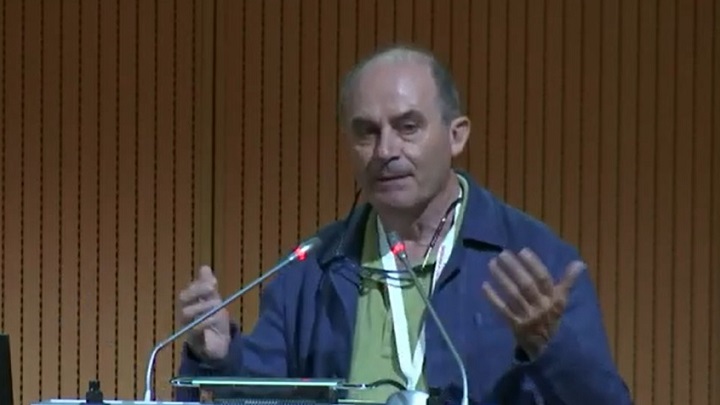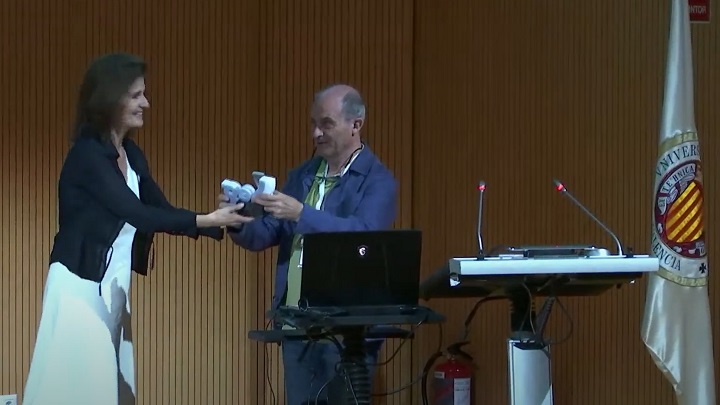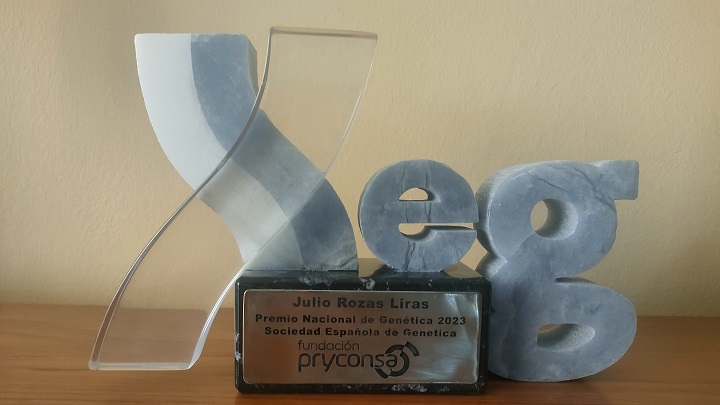Professor Julio Rozas is honored with the National Genetics Award 2023


This year, the jury also awarded — in the category of applied research— Professor Agustín Blasco, from the Polytechnic University of Valencia, for his contributions to animal genetic improvement. The awards were presented on Friday, during the XLIII SEG Congress, which took place in Valencia from 21 to 23 June.
Julio Rozas belongs to the Department of Genetics, Microbiology and Statistics of the UB and leads the Evolutionary Genomics & Bioinformatics Research Group of the UB. He is also a member of the board of directors of the Bioinformatics Barcelona (BIB) platform and of the Adaptation Genomics Thematic Network (AdaptNet), funded by the Spanish Ministry of Economy and Competitiveness (MINECO), which brings together leading scientists in the field of genomics at national and international level.
Rozas has contributed to the development of several bioinformatics tools, such as DnaSP (DNA Sequence Polymorphism), DOMINO (Development Of Molecular markers In Non-Model Organisms) or BITACORA: A pipeline for the identification and annotation of gene families in genome assemblies. He has also made relevant contributions to the study of the origin and evolution of multigene families of the chemosensory system.
In addition, through the application of massive sequencing techniques, he has participated in the sequencing and analysis of the genomic sequence of various organisms, such as 363 species of birds worldwide, within the framework of The Bird 10,000 Genomes (B10K) project, which aims to sequence the genome of all bird species in the world (Nature, 2020). Among these organisms were the Balearic shearwater (Puffinus mauretanicus), Europe's most endangered endemic seabird (Genome Biology and Evolution, 2022); the grape phylloxera (Daktulosphaira vitifoliae), the insect that caused the plagues that devastated European vineyards in the 19th century (BMC Biology, 2020); the spider Dysdera silvatica Schmidt 1981, an endemic species inhabiting the laurel forests of the islands of La Gomera, Hierro and La Palma in the Canary Islands (Gigascience, 2019); the tick (Ixodes scapularis), a parasite vector of many pathogens (Nature Communications, 2016); the myriapod Strigamia maritima, a common centipede on the coasts of northern Europe (PLOS Biology, 2014); and the human body louse (Pediculus humanus humanus), a small insect that feeds on the host's blood (PNAS, 2010). He has also studied the genome of the coffee plant (Science, 2014) and two varieties of the avocado plant (PNAS, 2019).
The National Genetics Awards, which the SEG has been awarding since 2009, aim to provide formal recognition to outstanding geneticists for the excellence of their contribution to genetic research and its applications in any area of social interest. Likewise, these awards — which have also been given to UB researchers Montserrat Aguadé (basic research, 2010) and Manel Esteller (applied research, 2011) — aim to disseminate knowledge of genetics and the importance of progress in this discipline for the benefit of society.
Multimedia gallery
Video of the XLIII Spanish Society of Genetics Congress.



